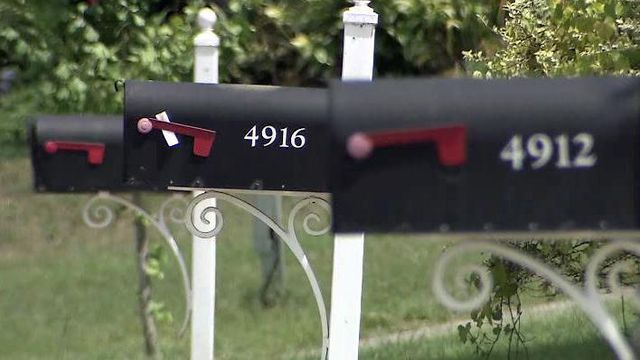Drop in foreclosures doesn't indicate better economy
Banks foreclosed on fewer homes in North Carolina and the nation during the first half of 2011, compared with a year earlier, but that's not a sign of an improving economy or personal finances, experts warn. Instead, new regulations and paperwork delays are the major reasons behind the drop in foreclosures.
Posted — UpdatedInstead, new regulations and paperwork delays are the major reasons behind the drop in foreclosures.
Nationally, banks seized 421,212 homes in the first six months of the year, down 20 percent from 529,633 between January and June of last year, foreclosure listing firm RealtyTrac Inc. said Thursday. Foreclosures in North Carolina fell about 24 percent.
"Banks have been taking longer to foreclose because of lawsuits, because of new regulations," North Carolina State University economist Mike Walden said. "I don't think we can look at these numbers as a good sign right now for the housing market."
Lenders are taking longer to move against homeowners behind on their mortgage payments or have simply put off taking action as U.S. home sales slowed this year. Banks are also working through foreclosure documentation problems that first surfaced last fall and created a logjam in some state courts.
Those delays will push more than 1 million foreclosures from this year into 2012, and that could delay a turnaround in the housing market to as late as 2016, said Rick Sharga, a senior vice president at RealtyTrac.
"It could be the new reality is we're going to have to accept the fact that home prices in most markets aren't going to budge much for the next several years while this overhang gradually, painfully makes its way into the market and gets purchased," he said.
Foreclosures typically bring down the value of neighboring houses and sell at low prices, decreasing home values. The average home has already lost 30 percent of its value since the start of the recession, Walden said.
As well, many people who could afford to buy homes are waiting for prices to dip lower.
An uncertain housing market also creates doubts for the U.S. economy, in which the housing market has has typically shown the first signs of recovery from past recessions, Walden said.
"I don't know if that will be a big enough blow to send us back into a recession, but clearly, it will probably be a psychological blow to people in the housing market," he said.
• Credits
Copyright 2024 by WRAL.com and the Associated Press. All rights reserved. This material may not be published, broadcast, rewritten or redistributed.






